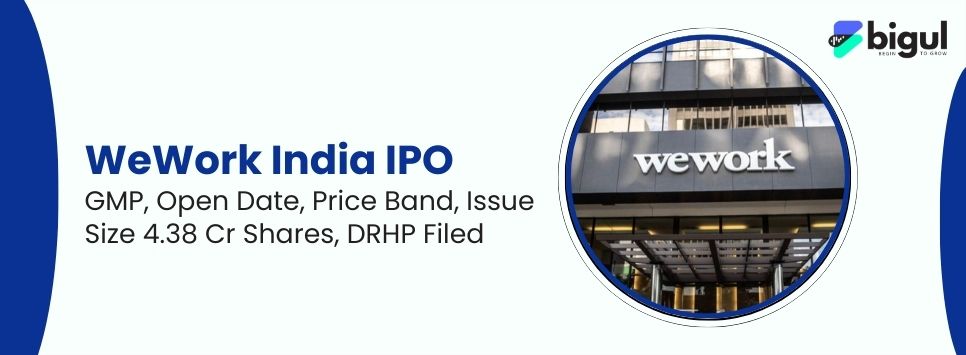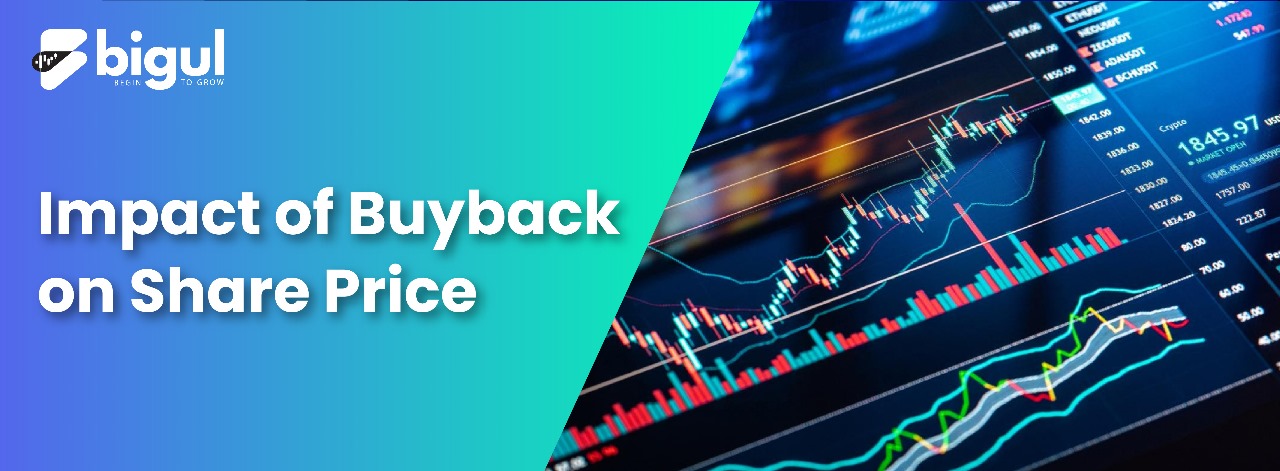The impact of buyback plans on share prices is important in finance and investing. Repurchases are when a firm buys back its own shares from the market. This financial move affects shareholders and the market.
Shareholders often eagerly anticipate buybacks as they can lead to increased earnings per share and potentially boost stock prices. However, the relationship between buybacks and share prices is complicated.
They are influenced by market conditions, financial health, and strategic goals. This article explores the complex relationship between buybacks and share prices.
What is Share buyback?
Share buybacks or share repurchases occur when companies repurchase their own shares from existing shareholders. This can be executed through a tender offer or the open market, typically at a price higher than the prevailing market value.
Open market buybacks happen through secondary market transactions, while tender offers allow shareholders to submit a portion of their shares within a specific timeframe. Buybacks serve as an alternative to dividends, rewarding existing shareholders.
Positive Impacts on Share Price
Share buybacks can have several positive impacts on a company’s share price when executed effectively. It can benefit shareholders and the company’s market image.
- Increased Earnings Per Share (EPS): A share buyback reduces outstanding shares, increasing EPS. With the same earnings distributed over a smaller number of shares, the EPS rises. Higher EPS often leads to an increased share price, as investors are more inclined to invest in a stock with strong earnings growth, thus positively impacting the share price.
- Shareholder Value Enhancement: Share buybacks increase shareholder value by reducing the number of outstanding shares, giving existing shareholders a larger ownership stake in the company. This can enhance the company’s share price because investors perceive it as more valuable with higher ownership per share. Consequently, it often leads to a higher share price, benefiting shareholders.
- Market Confidence: Announcing a share buyback program signals to the market that the company believes its stock is undervalued. This can boost investor confidence, increasing demand for the shares. As a result, the share price may rise as more investors seek to buy the stock, driven by the perception that the company’s confidence in its own shares reflects a positive outlook. This does ultimately benefit the share price.
- Supporting Share Price During Market Downturns: Share buybacks act as a financial safety net. During market downturns or when the stock price faces significant declines, a company’s buyback program allows them to purchase their own shares, which increases demand and stabilises the stock price. This support mechanism helps prevent the share price from dropping too sharply, reassuring investors and maintaining some stability in turbulent market conditions.
- Long-Term Growth Potential: When a company engages in a share buyback, it can signal confidence in its long-term growth prospects. This vote of confidence can attract investors who are seeking opportunities for sustained growth. More investors buying stock raises demand and share price. The repurchase signals that the company thinks its stock is undervalued and has great future prospects, which could boost its share price when investors buy in.
- Improving Financial Ratios: A share buyback can increase financial ratios such as EPS, P/E ratio, and ROE. By reducing the number of outstanding shares, earnings are divided among fewer shares, leading to higher EPS. This, in turn, can make the stock more appealing to investors and result in a better P/E ratio. Additionally, the reduction in shares can increase ROE, a metric demonstrating the company’s efficiency in generating profits relative to shareholders’ equity. These improved ratios can positively impact the share price.
Negative Impact on Share Price
Share repurchases benefit shareholders and the company. However, they can hurt share prices. Buybacks lower share prices in several ways:
- Overpaying for Shares: When a company repurchases its own shares at inflated prices, it can deplete its financial resources or accumulate debt. Overpaying for shares reduces the company’s overall value, potentially causing a negative impact on share prices. Shareholders may suffer as the company’s financial health weakens due to this costly buyback approach, affecting its stock valuation adversely.
- Misallocation of Capital: Companies that prioritise share buybacks over essential growth investments can harm their long-term prospects. By allocating significant capital to repurchasing shares, they may miss out on opportunities for innovation and expansion. This misallocation can lead to slower growth, reduced competitiveness, and hinder the company’s overall value. As a result, investors might become less optimistic about the company’s future, causing a negative impact on the share price over time.
- Reduced Liquidity: Large share buyback programs reduce the number of outstanding shares available for trading. This decreased share supply may lower business stock market liquidity. Smaller share turnover makes it tougher for investors to buy or sell shares at desired prices. Reduced liquidity can increase bid-ask spreads and price volatility, making investors unwilling to enter or exit positions hurting the company’s share price.
- Financial Strain: When a company takes on substantial debt to fund share buybacks, it increases its financial leverage. The larger debt load can worry investors, especially during economic downturns or financial stress. If excessive debt makes the company appear financially fragile, investor confidence and share price can suffer. Financial risk may lower share prices if investors worry about the company’s capacity to meet its obligations.
- Insider Trading Concerns: When a company repurchases its own shares, executives and insiders might possess non-public information that could impact the stock’s value. If it’s perceived that these insiders are timing the buybacks based on privileged information, it can lead to a loss of investor trust and a negative impact on the company’s share price as investors may fear unfair advantages or unethical behaviour among the management.
- Lack of Transparency: Lack of transparency in the process and intentions behind a share buyback can lead to investor mistrust. When shareholders are confused about why or how a buyback helps them, the stock price can drop. Investors may lose trust and sell shares if the company is not transparent about its financial health or strategic aims, lowering the share price. Maintaining investor trust and support during buyback programs requires clarity and open communication.
Why Share Repurchase?
Several companies decrease dividend payouts and purchase back shares to benefit shareholders. Below are several reasons for initiating a share buyback:
- Capital Efficiency: In India, share repurchases are a strategic financial move used by companies to maximise the efficient use of surplus cash. Instead of letting excess funds sit idle or in low-yield investments, companies opt to buy back their own shares. This approach returns value to shareholders, especially when the company perceives its stock as undervalued. It ensures that available capital is actively utilised to benefit investors and improve the financial health of the company.
- Enhancing Shareholder Value: Repurchases are often done to boost share value. Reducing outstanding shares boosts EPS, making the company’s stock appealing to investors. This can lead to higher stock prices, ultimately benefiting shareholders. When a company believes its shares are undervalued, a buyback signals confidence in its potential for growth, attracting more investors and potentially improving the overall value of the company’s stock.
- Avoiding Hostile Takeovers: Share repurchases in India serve as a defensive strategy to hinder potential hostile takeovers. When a company buys back its shares, it reduces the number of outstanding shares, making it more challenging and costly for a hostile acquirer to gain control. This discourages hostile takeover attempts, as the acquirer must accumulate a larger portion of the remaining shares to establish dominance. This often makes the takeover financially unfeasible or deterring such attempts altogether.
- Excess Cash: Companies often engage in share repurchases when they accumulate surplus cash due to profitability or asset sales. Instead of keeping this cash idle, they opt for buybacks to return value to shareholders. This strategic use of excess cash can enhance shareholder value and make better use of corporate funds, which might otherwise earn limited returns in low-yield investments or remain unutilised.
- Tax-Efficient Dividends: Share buybacks are often favoured over dividends due to their tax efficiency. The government has imposed taxes on dividend income, while gains from selling shares in a buyback are historically not subject to the same taxation. This tax advantage makes share repurchases an attractive way for companies to return value to their shareholders. It is because it helps investors retain a larger portion of the repurchase proceeds compared to dividend income, thus encouraging this method of capital distribution.
Methods of Buyback
Companies can buy back their own shares in many ways under the Companies Act 2013 and SEBI regulations. Companies buy back their own shares from the market or shareholders.
Here are the main methods of buyback in India:
- Open Market Purchase: In India, companies purchase back their shares like other investors from the open market. Companies set a maximum price and repurchase terms for their shares. The buyback process continues until the company acquires the desired quantity of shares or the specified time frame elapses. This method provides flexibility as it allows companies to repurchase shares as market conditions and share prices fluctuate, subject to regulatory limits.
- Tender Offer: Using this approach, a company specifies the quantity of shares it wishes to buy and the price. Offer your shares at the given price to participate. If shares tendered exceed the buyback limit, the business may take them proportionally. This mechanism lets shareholders sell or keep their shares at the proposed price. It lets the company limit its share acquisition, assuring a more regulated buyback.
- Buyback through the Stock Exchange: A company repurchases its own shares by placing orders on the stock exchange, specifying the desired price range and quantity. This method ensures transparency as the buyback occurs on the stock market. Companies must follow the stock exchange rules and regulations when executing buybacks in this manner. The stock exchange facilitates the process, and shares are bought back from existing shareholders who are willing to sell their shares within the specified price range.
- Employee Stock Option Plan (ESOP) Buyback: ESOP Buyback involves a company repurchasing shares issued to its employees through stock options. Employees can sell their ESOP shares back to the company at a predetermined price. This allows employees to realise the value of their stock options, and the company can effectively manage its share ownership structure. ESOP buybacks are a common practice to reward and retain employees while maintaining control over the distribution of company shares.
Conclusion
The influence of buybacks on share prices is a complex corporate finance topic. Buybacks affect stock prices in both the short and long term. Due to reduced supply, they usually boost share prices in the short term, but the long-term effect depends on market sentiment, the company’s financial condition, and the buyback timing. Investors should consider the broader financial health and strategic intentions of the company before interpreting share price movements in isolation. Buybacks can be a valuable tool when executed wisely, but they are just one piece of the puzzle in understanding a stock’s performance.
FAQs
- How do consistent buybacks affect share values over time?
Consistent buybacks, when executed thoughtfully, can support long-term share price appreciation. Reducing the number of outstanding shares and increasing earnings per share can make a company more attractive to investors, potentially leading to sustained share price growth.
- Does a share buyback always result in a higher share price?
Not always. The impact on share prices in India can vary depending on market conditions, the company’s financial health, and investor sentiment.
- Are there any tax ramifications for Indian shareholders when a business buys back?
Yes, there are. Shareholders might be subject to a tax on buyback gains. However, the tax impact depends on the specific circumstances and tax laws applicable at the time of the buyback.
- How do Indian regulatory guidelines affect the impact of share buybacks on stock prices?
Indian regulations set limits on the extent of share buybacks, which can moderate the impact. Companies must adhere to SEBI guidelines to ensure fairness and transparency.
- Can share buybacks in India be used to manipulate share prices?
Share buybacks should be done for legitimate reasons, such as returning excess capital to shareholders. Manipulative buybacks can attract regulatory scrutiny.








.jpg)
.jpg)
